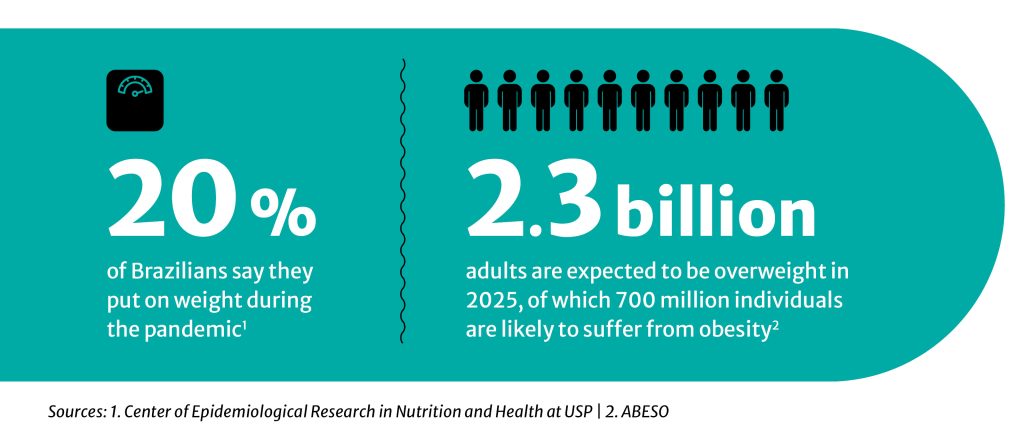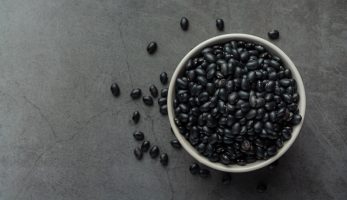Hunger: food vouchers provide immediate support
By Gabriela Carvalho Parente, nutritionist and nutrition coordinator at the Dara Institute.
Health and Nutrition are inherently intertwined in the Family Action Plan at the Dara Institute, offering an intersectoral method of fighting poverty
Working with vulnerable families means recognizing that, when dealing with hunger, there are different levels of food insecurity that need to be addressed. While some fear running out of food for their children, others simply don’t have it. Brazil went back on to the World Hunger Map during the pandemic.
Mapping the food insecurity situation is our primary objective whenever we start a new service. To define whether the condition is mild, moderate or severe, families take part in an initial interview and fill out a questionnaire with 15 questions, designed by the Brazilian Food Insecurity Scale, which measure the perception and experience of food insecurity and hunger at home in the last three months.
With these results, we continue with a fundamental step of the work: ensuring that food does not run out. Each family served receives a monthly food voucher of R$200, which works like a food card. In return, they present the invoice for all the purchases made using the card. As such, we can assess whether they are getting the right amount of food and whether they are buying healthy products.
By mapping food insecurity and handing out the voucher, we created a personalized action plan for each family in which nutritional and financial education go hand in hand: dividing to multiply, doing what is possible within each reality. It is delicate work that requires affection, care and attention. Far from imposing right or wrong, we understand that families, in general, arrive at Dara with little access to information.
Part of the work done by Nutrition team is to change the culture of food and bad eating habits, which are deeply rooted in the population served by Dara. Guiding families to optimize their food purchases with greater nutritional value and raising awareness about the full use of food are among the challenges we face.
We have to demystify visions such as “eating healthy is expensive” and “it’s not for me”, or even “I’m going to give my son a cream-filled cookie”. Our job is to inform people about the best choices for purchases in the market, help to develop awareness about what products they should give preference to.
Nutritional poverty can lead to a serious health problem, obesity. According to a study by the University of São Paulo, weight gain is associated with people with lower levels of formal education, less access to fresh products and more exposure to unhealthy food advertising. This is quite clear here at Dara, and the pandemic appears to have been an additional contributory risk factor to this for both adults and children.
 The families served at Dara have a tendency to excessively consume processed foods, with a lot of salt and few nutrients. For them, it is cheaper, more practical and a way of showing affection for their children. Another common belief is that because of their vulnerability they cannot access other types of food. As such, diets are generally made up carbohydrates, fried foods, ready-made and ultra-processed products and seasonings.
The families served at Dara have a tendency to excessively consume processed foods, with a lot of salt and few nutrients. For them, it is cheaper, more practical and a way of showing affection for their children. Another common belief is that because of their vulnerability they cannot access other types of food. As such, diets are generally made up carbohydrates, fried foods, ready-made and ultra-processed products and seasonings.
Our job is to deconstruct these beliefs so that the family can change their eating habits. The point is not to stop eating, it is to know how to eat. How to choose healthy and affordable proteins? The chicken steak is out, which is an ultra-processed product, and chicken breasts are in, which can be shredded and are higher in nutritional value. Instead of yogurt full of dye and sugar, we suggest natural homemade yogurt that, with just two ingredients, yields more than a liter. Over the two years that the family is with us, we tailor these conversations and thoughts about how to make adjustments with their input, making the solutions more palatable.

When we identify families classified in the “severe category” on the Brazilian Scale of Food Insecurity, we count on the support of fundraising for the donation of basic food baskets. Unfortunately, with high inflation and rising prices in the market, we noticed a difference in consumption. Purchases of chicken feet and necks have been more frequent, because of the cost. This is the first time I have seen this since I started working at Dara five years ago.
Families are the protagonists in this process. They manage to get out of the situation of food insecurity when they know more about food, how to reuse food and when they increase their income. We have training courses developed by Nutrition in conjunction with the Income area, such as functional cooking and a workshop on the full use of food. What the families served learn here, in addition to being an impetus for income generation, they put into practice in their homes.
The turning point for these families is when they realise that it is possible to improve the situation of hunger with access to information. The discouragement with which they arrive here, without seeing a solution to their problems, is transformed into a willingness to use available resources and information and make better choices. We work by welcoming and guiding them so that they leave the program with a more positive mindset than when they arrived.




